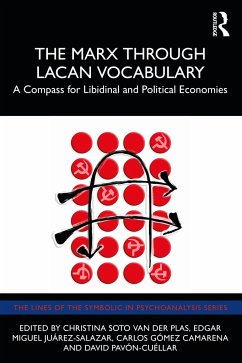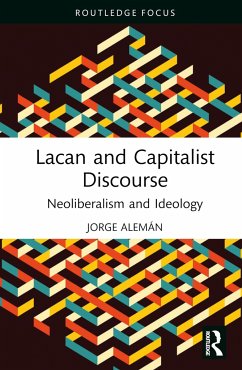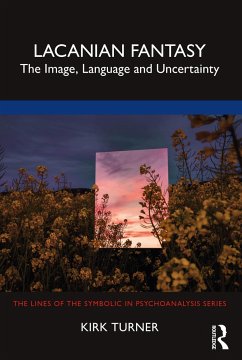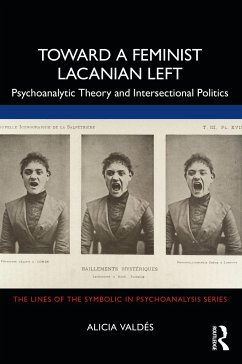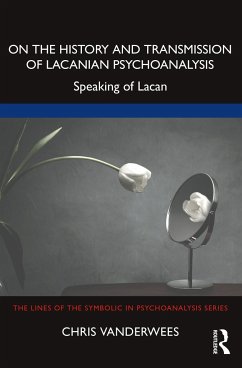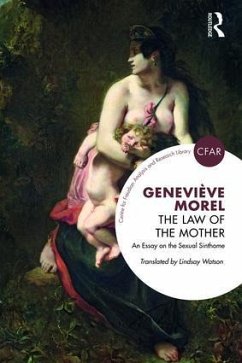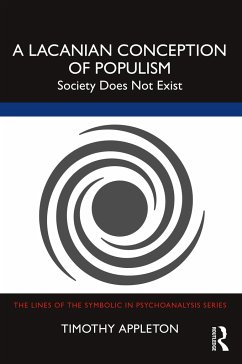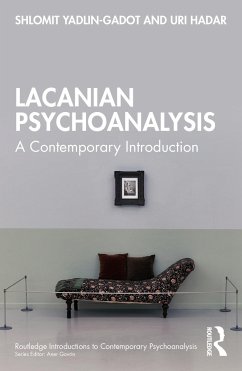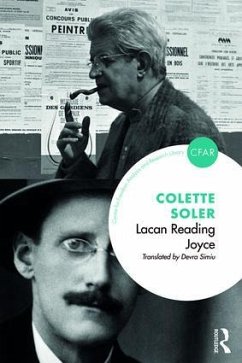
The Marx Through Lacan Vocabulary
A Compass for Libidinal and Political Economies
Herausgegeben: Soto van der Plas, Christina; Miguel Juárez-Salazar, Edgar; Gómez Camarena, Carlos; Pavón-Cuéllar, David
Versandkostenfrei!
Versandfertig in 6-10 Tagen
144,99 €
inkl. MwSt.

PAYBACK Punkte
72 °P sammeln!
This text explores a set of key concepts in Marxist theory as developed and read by Lacan, demonstrating links and connections between Marxist thought and Lacanian practice.The book examines the complexity of these encounters through the structure of a comprehensive vocabulary which covers diverse areas, from capitalism and communism to history, ideology, politics, work, and family. Offering new perspectives on these concepts in psychoanalysis, as well as in the fields of political and critical theory, the book brings together contributions from a range of international experts to demonstrate ...
This text explores a set of key concepts in Marxist theory as developed and read by Lacan, demonstrating links and connections between Marxist thought and Lacanian practice.
The book examines the complexity of these encounters through the structure of a comprehensive vocabulary which covers diverse areas, from capitalism and communism to history, ideology, politics, work, and family. Offering new perspectives on these concepts in psychoanalysis, as well as in the fields of political and critical theory, the book brings together contributions from a range of international experts to demonstrate the dynamic relationship between Marx and Lacan, as well as illuminating "untranslatable points" which may offer productive tension between the two. The entries trace the trajectory of Lacan's appropriation of Marx's concepts and analyses how they were questioned, criticized, and reworked by Lacan, accounting for the wide reach of two thinkers and worlds in constant homology. Each entry also discusses psychoanalytic debates relating to the concept and seeks to refine the clinical scope of Marx's work, demonstrating its impact on the social and individual dimensions of Lacanian clinical practice.
With a practical and structured approach, The Marx through Lacan Vocabulary will appeal to psychoanalysts and researchers in a range of fields, including political science, cultural studies, and philosophy.
The book examines the complexity of these encounters through the structure of a comprehensive vocabulary which covers diverse areas, from capitalism and communism to history, ideology, politics, work, and family. Offering new perspectives on these concepts in psychoanalysis, as well as in the fields of political and critical theory, the book brings together contributions from a range of international experts to demonstrate the dynamic relationship between Marx and Lacan, as well as illuminating "untranslatable points" which may offer productive tension between the two. The entries trace the trajectory of Lacan's appropriation of Marx's concepts and analyses how they were questioned, criticized, and reworked by Lacan, accounting for the wide reach of two thinkers and worlds in constant homology. Each entry also discusses psychoanalytic debates relating to the concept and seeks to refine the clinical scope of Marx's work, demonstrating its impact on the social and individual dimensions of Lacanian clinical practice.
With a practical and structured approach, The Marx through Lacan Vocabulary will appeal to psychoanalysts and researchers in a range of fields, including political science, cultural studies, and philosophy.



